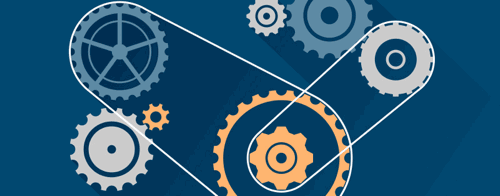Operating system software
 The operating system software is the first thing to load when you turn your computer on. It runs constantly, organising and controlling your computer so other programs operate smoothly
The operating system software is the first thing to load when you turn your computer on. It runs constantly, organising and controlling your computer so other programs operate smoothly
Your employees will interact with the operating system software each time they do something with their computer. It's therefore important your operating system is reliable and easy to use.
Which is the best operating system software?
The operating system software market is dominated by Microsoft. The vast majority of companies use some form of Microsoft Windows as the operating system on their computers.
Windows 8 is the latest version. It launched in October 2012 and was the first version of Windows designed to work across desktop, laptop and tablet computers.
Although its revamped interface caused some confusion when it was launched, Windows 8 is a sensible choice of operating system software. You may also wish to consider Windows 7 - although older, it remains perfectly capable.
Having said that, it may be worth evaluating other types of operating system software. A number of key factors will influence your choice:
- Your existing systems. Standardising on one type of operating system software will make it easier to network computers in your business and can reduce your support costs.
- Familiarity. If you adopt an operating system your staff aren’t familiar with, you may need to invest more in training and support.
- Complexity. Some operating systems require more technical knowledge to set up and maintain than others.
- Software compatibility. You can only run programs designed to work with the operating system software you choose.
- Hardware compatibility. Not all computer equipment will work with less-common operating systems. Always check before buying.
Types of operating system software
There are three main types of operating system software:
- Microsoft Windows. The default choice for most businesses, Windows comes preinstalled on many new computers. Your employees are likely to be familiar with this operating system, although Windows 8 introduced a new interface that takes a little getting used to.
- Linux. There are many types of this free open source operating system. It remains a fringe choice for businesses and is most often used by IT experts. However, Linux is now more user-friendly than ever and now supports most common hardware. As it’s free, it’s can be worth trialling in your company.
- Mac OS. If your business uses Apple Mac computers, you’ll probably be using Apple’s operating system software. It’s widely praised for its ease-of-use and stability.
It is usually possible to combine different operating systems on the same computer network. In particular, Mac OS and Windows can easily be used side-by-side - although using more than one operating system may increase your IT support and maintenance costs.
Operating system software maintenance
To keep your operating system software running smoothly, check for updates regularly. It’s particularly important to install security-related updates to protect against hackers and viruses.
New versions of operating systems - with major changes - are released once every three years or so. Although there may be attractive deals encouraging you to upgrade, it’s usually wise to wait until the new version has been proven to be reliable.
For instance, many companies continue to use Windows 7, even though it has been superseded. Microsoft will continue to provide crucial updates to Windows 7 until 2020, so there's no pressing need to upgrade.
On the other hand, any businesses still using Windows XP should upgrade immediately. Microsoft no longer issues security updates for this software, making it an attractive target for hackers.
Because your operating system software is a critical part of your business IT, you may wish to speak to an IT supplier before making changes or upgrading.




Comments
Add a comment
Not registered? We'll create a new account for you when you add your comment